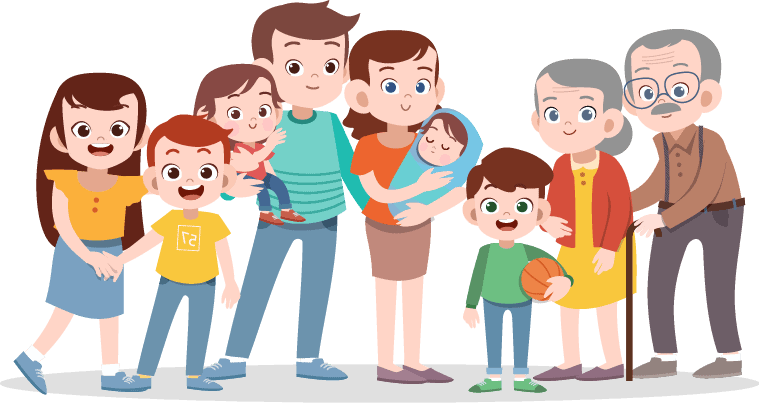
Dr. Isha Singh
Led by the renowned Dr. Isha Singh, our pediatric services cover everything from routine vaccinations to adolescent counseling, ensuring your child’s health and development are nurtured every step of the way.
Expert care for various pediatric conditions.
Tailored advice for your child's dietary needs.
Guidance for teenagers facing the challenges of growing up.
Support for parents navigating the complexities of raising children.
Remote access to our pediatric care services.
Comprehensive immunization services to protect your child's health.

As per standard definition axial temperature of 97.4 to 99°F is normal body temperature. So a body temperature of above 99.5°F is considered as fever.
Ideally, a rectal temperature should be taken in infants but since it is of discomfort to child, we prefer to take axillary temperature using the digital thermometer.
Fever can be presenting sign of many illnesses like infections, autoimmune disorders, cancers, hormonal imbalances etc.
The most common cause of fever in both children and adults is infection which can be due to any organism like viruses, bacteria or protozoa, among these, viral fever are most common.
If the child has temperature between 99.5° to 102.2°F, there are no other symptoms serious symptoms like difficulty in eating or breathing, lethargy, dullness or drowsiness, persistent vomiting etc, then give weight appropriate dose of paracetamol and plenty of liquids. If the child eats well is playful in between febrile episodes has no serious symptoms as mentioned above then you can continue this till you are able to visit your pediatrician. Giving weight appropriate paracetamol is important. Child should be drinking enough liquids that he can pass urine every 2 to 3 hours.
But, if child has any serious symptoms as mentioned above then visit your pediatrician immediately or nearby hospital.

We all know how important is breast-feeding for the newborn. For ages, the importance of breast milk has been emphasized by grand-parents, by doctors and nurses, by the government.
So I’ll just quickly review the most important points.
A newborn baby should be given breast-feeding as soon as possible after birth as it helps regularize babies temperature increase breast milk output so this baby and also helps mother relieve the pain and stress of delivery.
The amount of breast milk is less in the first few days but the milk is thick and sufficient for the baby. This thick initial milk (colostrum) is very rich in nutrients and immunoglobulins and so protects the baby from various diseases.
For the first 5-7 days, feed the baby every 2-3 hours, later on, you can feed when baby demands. Sometimes babies demand feeds frequently, but gradually the rhythm is set and you start understanding baby’s demands.
Always burp the baby after feeding for 15-20 minutes.
For first 5-6 months, do not give anything to the baby apart from breast milk.
For further reading, Read my blog.
What and when to give top feeds to my baby?
As per the doctors around the world the best age to start complementary feeding is 5-6months.
Complementary feeding means starting food items to babies after 5-6 months of age in addition to breast milk.
Breast milk is very crucial for baby’s health and development till 2 years of age or beyond. So, give complementary food along with breastfeeding to keep up the growing nutrition needs of the baby.
You can start with small amounts of mashed foods 2 – 3 times a day and gradually increase the frequency, consistency and variety as the baby gets older. Banana, papaya and other pulpy fruits are good to start with. Then you can go on adding cereals like rice or suji porridge, khichdi etc. food should be given at a gap of atleast 2 hours after milk as the baby won’t accept food on full tummy.
For further reading, Read my blog.
What foods should be given?
Everything you eat can be given. Try to give a balanced diet and maintain minimum of 2 and half hours gap between meals
Milk is important but in limited quantity. Average requirement of milk (including all milk products like curd, yoghurt, ice cream, chocolate, porridge etc) is 350-450ml per day.
Green vegetables and fruits should form a major quantity of diet.
Stop nagging or forcing a child to eat.
Inculcate the habit of self-eating as early as possible.
Ideally, No TV, Laptop, or mobile should be shown while feeding. But a lot of time parents struggle a lot, so, I advice use it very judiciously if at all.
Have a family meal time!
Basic rules for the nutrition remain same as younger kids.
This age group is more prone to the junk foods.
They do need high calories for growth and keeping energy levels high, but these calories should come from whole wheat, rice, other cereals, milk, fruits and not high sugar foods like biscuits, cakes, chocolates, soft drinks etc.
They also need to eat plenty of green, yellow and orange vegetables.
Try to give homemade foods as much as possible including sweets like aata, dal or besan laddos.
Give one day every week to let them have their fill of junks but rest 6 days stick to homemade foods.
To encourage them to eat healthy food, first you have to start eating healthy food.
These are again a very challenging as they are little stubborn, do as they please, usually on a mode to say no to everything their parents say…i think you all can relate to this.
The basic principals are exactly same as above.
How to encourage them to eat healthy?
Teenagers are very concerned for how they look, so try to tell them these benefits or let other adults whom they idolize tell them these.
3. Ask them to search these topics online, and conduct small seminars for their younger siblings or friends.



Wellness @2024 All Rights Reserved | Designed by Onetech Solution